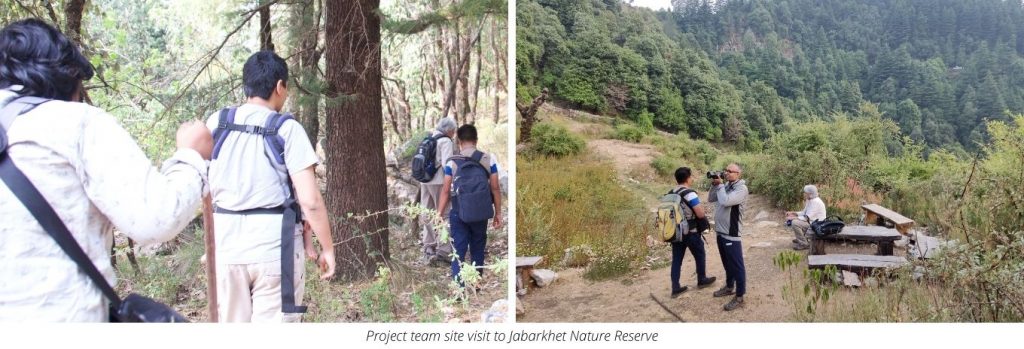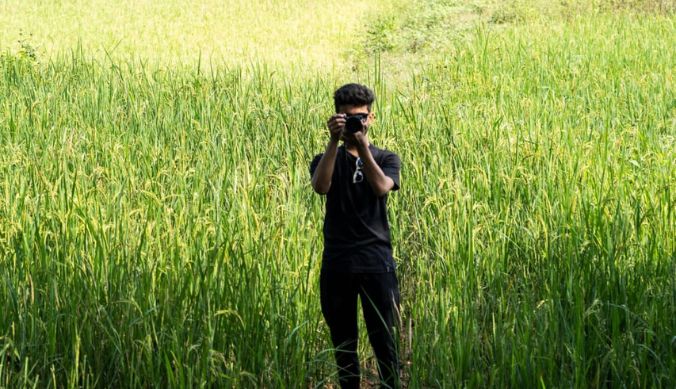The Big Picture: Studying the impact of climate change on zoonotic disease spillovers
Dr. Balaji Chattopadhyay, Assistant Professor at the Trivedi School of Biosciences, elaborates on the long term study initiated by 3CS on the impact of climate change on small mammal communities and the risks of spillover infections
Climate change plays a crucial role in the emergence and re-emergence of infectious diseases, posing continual threats to human health, and creating economic challenges. It has created a favourable environment for spillover infections, and a vast majority of emerging infectious diseases are transmitted from wildlife to humans (zoonotic diseases).
While enormous resources are spent over the years on curative measures for such infections, little is known about the ecology, biology, and evolution of such outbreaks. The current pandemic has also exposed these lacunae, thereby highlighting the need for a systematic approach to understand the complex dynamics of zoonotic spillovers. In this regard, a long-term research program to track the evolution of wild populations (and their pathogens) under climate change would greatly advance our understanding of the ripe conditions (environmental and biological) that facilitate disease spillovers.
Despite their importance, long-term studies are particularly challenging to implement and 3CS has tackled this directly by initiating a long-term study on the impact of climate change on small mammal communities and the risks of spillover infections.
Over the next decade, we aim to establish multiple field sites in different regions across the country to identify key hosts and pathogens of potential zoonotic interest, note the complex interaction between them, and understand the impact of climate change on biodiversity, habitat degradation, and the movement of hosts and pathogens over time. This will help us improve our understanding of these spillovers, build models to assess our chances of other outbreaks, and generate critical information on the ecological and evolutionary consequences of climate change on biodiversity.
How does climate change impact disease spillover?
Human-mediated degradation of natural habitats and climate change have in conjunction imperiled wildlife and forced them into proximity with humans. Such coerced cohabitation can facilitate pathogen movement between wild hosts, livestock, and ultimately into humans. For example, the Nipah virus was identified in several bat species, particularly fruit bats. It has been hypothesised that the spillover of Nipah virus from bats to pigs was driven by two factors: human intrusion into natural habitats wherein pig farms expanded into natural bat habitats, and the intensification of monoculture farming (palm oil plantation), driving the bats to forage closer to human habitats increasing the contact with domestic animals and humans.
Climate change also leads to expansion of the host distribution range — the breadth of organisms that can be infected. For instance, in America, warmer climates led to the vector Aedes aegypti mosquito (that transmits dengue, yellow fever, and Zika virus) moving further North.
However, we are yet to ascertain how biological communities (a group of interacting species in an area) respond to climatic fluctuations and human disturbances, and its effect on increasing risks of spillover infections. Hence, drastic measures are necessary to mitigate and prevent the chances of future zoonotic spillover events.
Why do we need long-term studies in India?
One Health (focus on human wellbeing) and Eco-Health (focus on ecology and biotic survival) are approaches being pursued globally to understand the interactions between biotic communities, their abiotic components, and human health. The lack of data from systematic studies from the Indian subcontinent is notable, with the exception being the abundance of bat-borne virus data from Bangladesh.
This is even more concerning given the high potential of outbreaks in this region, which is extremely vulnerable to climate change and is characterised by high human density, high rate of environmental degradation, and frequent human-wildlife conflict. While small mammals and livestock comprise a crucial reservoir system of zoonotic infections, very little is known about the conditions that facilitate spillover events between these animals. A systematic study involving long-term monitoring of wild populations would greatly advance our understanding of disease transmission dynamics.
The challenges of conducting long-term studies:
The inherent difficulties in conducting a long-term investigation include extensive field study across habitat gradients, large-scale sample collections, and expensive molecular laboratory methods. The combination of both field and laboratory studies can create well-validated data-driven mechanistic models to elucidate the aspects of ecology that are most critical to understanding the dynamics of emerging infectious diseases.
For a holistic research program like this long-term monitoring is crucial, and getting continual funding is a major challenge in conducting this kind of study. 3CS hopes to address this by establishing a reliable and continuous stream of funding for this work at least over the next ten years, given the relevance, importance, and urgency of such a long-term study in the Indian context to understand where we are headed, and ensure we are better prepared.
The importance of studying sites across the country — different regions and different impacts

With the increasing threat of emerging infectious diseases, it is imperative to obtain georeferenced data for mitigating disease threats to wildlife and humans. India is an exceptionally bio-diverse country. Different regions have different climatic conditions and biodiversity, factors that directly influence host-pathogen assemblages, its evolution, and ecology. The level of human-wildlife interaction may also differ across the country. A long-term study to understand the diversity of potential pathogens circulating in the wild in multiple well-established sites in different landscapes and under changing climatic conditions can inform us of the risk and whether these pathogens are of public health concern or not.
Through this project, 3CS hopes to create an understanding of disease spillover dynamics under climate change that can help us assess the chances of other outbreaks and help improve pandemic preparedness strategies. We also hope that this can encourage other researchers to take up long term studies. More importantly, we hope it will encourage other organisations to support such studies over the long run, in funding and otherwise, to create the sustained focus necessary for us to understand and attempt to address the complex ways in which climate change will impact us.
Dr. Balaji Chattopadhyay is the principal investigator leading this project. The project team includes Dr. Shivani Krishna, Dr. Kritika Garg, Dr. Imroze Khan, and Dr. Bittu Kaveri Rajaraman. Dailu Pilot Dovih is Senior Project Associate for the project.










